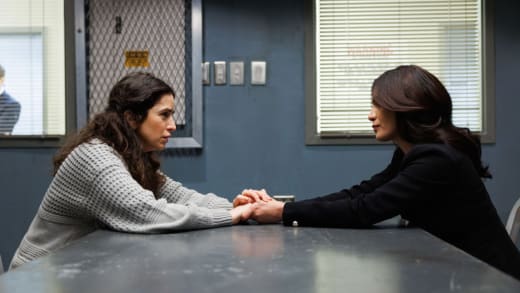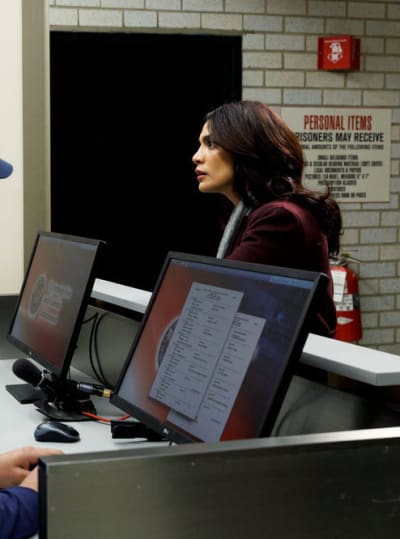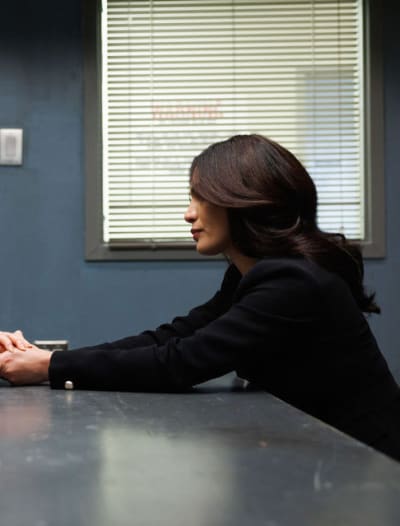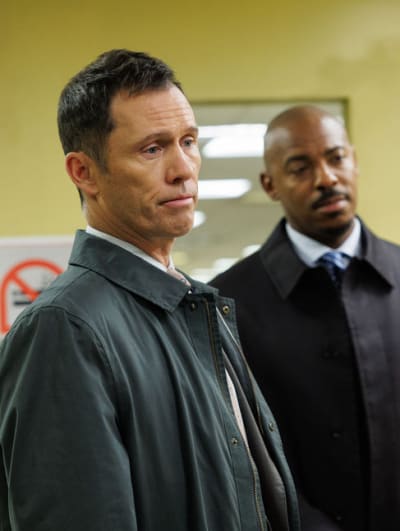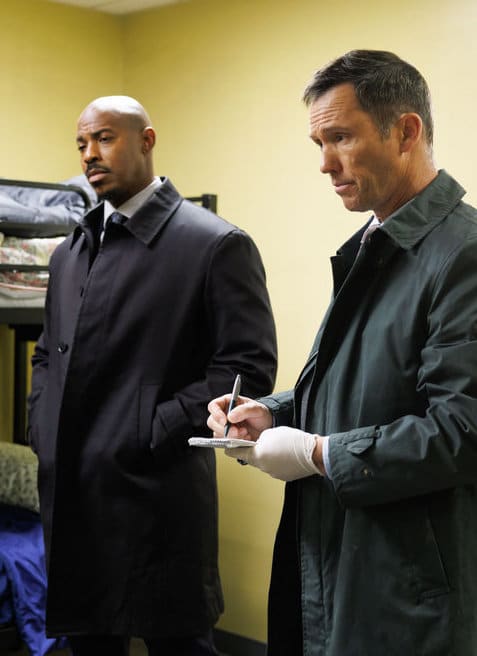
New York construction sites are dangerous, especially in the Law & Order universe.
Law & Order Season 22 Episode 10 offered an investigation into a homeless man’s death that led to a major cover-up on a construction site — and it wasn’t even the same construction site death that Stabler has been investigating on Law & Order: Organized Crime Season 3!
It’s a shame the writers skipped this crossover opportunity, but the story they did tell was compelling despite a somewhat predictable ending.
This story touched upon the class war between the rich and powerful and the homeless community, but the real story was that of undocumented immigrants. The Law & Order franchise loves to explore this issue; all of the current series have had stories involving immigration issues at one time or another.
I wanted to know more about who Morales was outside of witnessing a murder!
Morales didn’t have much power, or it would have been harder to kill him, and he would have had people who could protect him after he saw the construction workers burying dead migrants. But his initial scenes implied he did; what happened to that?
The hour began with him threatening to seriously hurt the snobby businessman who started crap with another homeless guy, making it seem like Morales had affiliations with gang leaders or others who would help him give that guy the beatdown he deserved. Was he talking trash or what?
Woman: Luis’ parents told him that this was a land of opportunity and he believed them.
Cosgrove: And you don’t?
Woman: Work here a week and then talk to me.
This story would have worked equally well without the witness who happened to be an undocumented worker. Morales was a Venezuelan refugee who had been shipped to New York from Texas and had a hard time starting his new life. He lived in a shelter adjacent to a high-rise, and people saw him as nothing more than a blight on their otherwise valuable property.
That whole setup made the point, but it was only part of the story the writers wanted to tell.
That’s why the investigation led to a developer who was happy to use migrant workers for his own purposes and equally glad to dispose of them illegally when things went wrong.
Wise was a typical Law & Order villain: a wealthy business owner everyone knew of because his name was on half the city’s buildings, but he was seriously shady.
You get to live up high when your empire is built on other people’s backs.
Cosgrove
Even the ordinarily conservative Cosgrove knew Wise was the kind of person who didn’t care who he stepped on as long as he stayed on the top and they stayed on the bottom.
Wise was smug as he pinned the cover-up of the accident on the foreman, denied ever promising to “take care of” Morales, and acted like the aggrieved party.
His downfall came because he didn’t think he needed to ensure his staff, too inferior in his mind to be worth a second thought, did not incriminate him or themselves.
Wise likely knew that Randall was wearing a wire during the meeting where he fired him; Randall’s questions were so pointed and direct that it would be hard not to realize he was a police informant.
But Wise didn’t take any precautions other than refusing to confess to Randall.
Firing Randall was stupid — that only gave his former employee even more incentive to become a whistleblower. Letting his security guard/hired hitman wear the murder weapon at a meeting that was likely being observed by the cops was even stupider.
And let’s not even talk about Wise letting his housekeeper overhear conversations confessing to the crime! Wise’s biases blinded him to the point of extreme incompetence.
Once the case shifted to the DA’s office needing an undocumented worker’s testimony, things got predictable.
Every crime drama in recent memory has done a variation of this story at some point. The DA’s office always swears up and down that they will protect the immigrant, and the immigrant always gets arrested by ICE anyway.
Except for her assertion that the security guard left with a duffel bag, how valuable was the housekeeper’s testimony? I’m not a lawyer, but it felt like at least some of her testimony fell under hearsay since she heard one defendant tell the other not to deposit blood money.
Although the witness was scared to testify because of her immigration status, she put up no fight beyond waiting five minutes to decide to talk to Maroun.
It would have been a more compelling story if she were less cooperative, and the DA’s office had to work to get her testimony. Instead, she agreed, was rounded up by ICE almost immediately, and testified despite her belief that the DA’s office was not doing much to help her stay in the US.
That sequence of events made it clear what would happen. Sure enough, ICE deported her and her daughter the second her testimony secured a conviction against Wise.
The message was clear, and there was some power in it, but it was also so damn predictable. By now, viewers have experienced so many stories like this that it’s practically a trope. That dilutes the message; something more original would likely make the point more strongly.
What do you think, Law & Order fanatics? Was the deported immigrant witness story a tired trope or riveting television? Hit the big, blue SHOW COMMENTS button and let us know.
Don’t forget you can watch Law & Order online if you’d like a refresher before you comment.
Law & Order airs on NBC on Thursdays at 8 PM EST / PST.
Jack Ori is a senior staff writer for TV Fanatic. His debut young adult novel, Reinventing Hannah, is available on Amazon. Follow him on Twitter.


